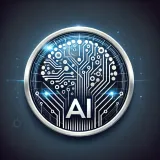The Rise of AI-Generated Authenticity: Trust in a Synthetic World

Can you believe an algorithm might know your tastes better than your closest friends? Welcome to the era where artificial intelligence doesn't just understand human behavior but generates authenticity, shaping how we perceive reality in our digital interactions. This transformation brings about profound questions: What happens when technology can tailor and even manipulate experiences with unprecedented precision? In recent years, AI's ability to synthesize realistic text, images, and voices has reached astonishing levels of accuracy, powered by advancements from industry giants like OpenAI and Google AI. This capability isn't confined to creating deepfake videos or mimicking voices. It extends to generating personal, relatable, and deeply engaging content that resonates on a human level, reflecting individual preferences and behaviors. However, the trajectory of AI-generated authenticity is not without controversy. While these advancements can enhance personalization in marketing and entertainment, they also raise significant ethical concerns. What are the implications of AI that can generate not just convincing but deeply personalized interactions? Are we prepared for a world where digital authenticity is hard to discern from human authenticity? Deepening Personalization in Digital Interactions AI's role in heightening user experience through personalization is already visible across various platforms. Spotify's music recommendations, Google's search algorithms, and even your social media feeds are all filtered and influenced by AI that learns from your interactions, searches, and even the time you spend on specific content. But the new frontier for AI is creating content that doesn't just meet general user preferences but individual emotional and psychological profiles. For instance, AI in gaming is now capable of generating dynamic narrative elements that adapt not merely to the choices of the player but their mood, judged by their gameplay style and previous interactions. This level of personalization makes each player's game experience unique and more engaging. Meeting the Challenges of AI-Driven Authenticity While the benefits of AI-generated authenticity are significant, they come with a host of ethical questions and technical challenges. Firstly, the proficiency with which AI can mimic human attributes poses a risk of deception. Deepfakes, a technology that uses AI to create very convincing fake audios or videos of people, have been at the center of many controversies, highlighting potential for misuse in misinformation and fraud. Moreover, the personalized nature of AI-generated content could lead to more insulated echo chambers where individuals only see or hear what aligns with their views, reinforcing biases and decreasing exposure to diverse perspectives. There's also the broader issue of trust. As AI becomes better at generating content that appears authentic, distinguishing between what's real and what's synthetic could become increasingly difficult, potentially eroding trust in digital media. The Responsibility of Developers and Regulators Given these challenges, the burden of responsibility lies not only with AI developers and technologists but also with regulators. It's essential that there is transparency about how AI systems operate and the extent of their use in content creation. Moreover, there needs to be robust frameworks and guidelines to prevent the malicious use of these technologies. Technological safeguards, like watermarking AI-generated content, could help maintain authenticity. Education will also play a crucial role in helping the public understand AI's capabilities and limitations, fostering a more informed discourse about its societal impacts. Looking Ahead AI-generated authenticity is transforming our digital interactions, making them more personalized and immersive. However, as we navigate this evolving landscape, we are tasked with balancing innovation with ethical responsibility and regulatory oversight. As AI continues to develop, keeping the human aspect at the forefront of tech advancements will be crucial. After all, in a world increasingly populated by synthetic creations, preserving human touch in digital experiences remains invaluable. This rise of AI-generated authenticity challenges us to redefine trust and authenticity in a synthetic world, urging us to tread carefully into this new frontier. In conclusion, while the capabilities of AI to create authentic experiences are impressive, they require careful management to ensure that technology enhances rather than detracts from genuine human connection. As we look to the future, the way we handle the rise of AI-generated authenticity will significantly shape our synthetic yet profoundly human world.




